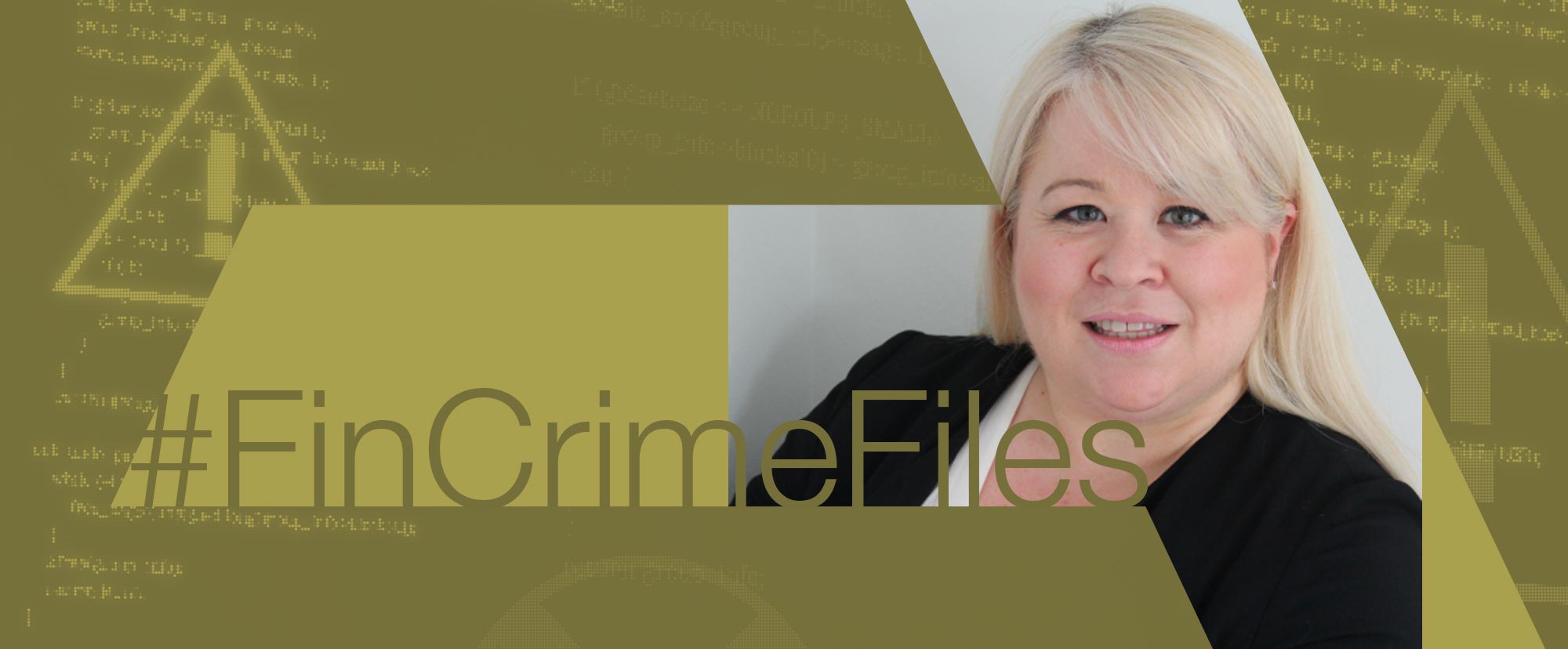3 min read
The FinCrime Files – Q&A with Caroline Kennedy, Head of Financial Crime Control Operations at Santander UK
![]() AML RightSource
:
April 30, 2020
AML RightSource
:
April 30, 2020

In the latest of our FinCrime Files interviews, we caught up with Caroline Kennedy, Head of Financial Crime Control Operation at Santander UK. She discusses the difficulties behind unstructured data for fighting financial crime, the key benefits of artificial intelligence and challenges for the sector in relation to AML.
Hi Caroline, could you tell us a little about yourself and your current role?
I joined Santander UK in July 2018 and I lead a team in Corporate Banking managing financial crime control processes. My main area of focus is Transaction Monitoring to prevent Money Laundering. I am a wholesale banking SME and represent Corporate Banking on a number of Financial Crime Transformation programs. I also work with my colleagues in Madrid to identify and implement group wide Transaction Monitoring and Screening solutions. Prior to this I was Global Head of AML Operations in HSBC.
What do you consider to be the current top 3 challenges in relation to fighting financial crime?
- Data – Banks have tremendous amounts of data regarding customers, accounts and transactions. However, this data can only be effectively used if it is correctly recorded, structured and maintained. A lot of investment is underway to ensure that data is remediated and maintained in excellent order in future.
- Innovation – In the past, firms were able to quickly introduce new products or changes to processes that did not necessarily have an impact on Compliance controls. However, as more sophisticated controls are applied, using advanced and integrated technical solutions, the impact of new products and processes has increased and needs to be considered carefully before these changes are applied.
- Complex regulatory requirements – As compliance regulations are not consistently applied in multiple jurisdictions, it is a challenge for firms to implement globally consistent policies and frameworks in an efficient manner, but this is key to the deployment of effective controls and to protect the financial services industry from the increasing threat of financial crime.
What are the most frustrating things you find yourself dealing with, in terms of data in relation to fighting financial crime? (e.g. manually searching, processing unstructured data, paper trails, slow customer response, too many false positives etc).
To manage financial crime risk effectively, we need to use data which is often unstructured and subject to change. Records need to be provided to demonstrate data at a point in time for regulators and overseers. This presents a challenge for large firms as the amount of data and records retrieved and stored on a daily basis can be immense. Firms need to identify and implement procedures and tools that eliminate the storage of non-essential and/or non-critical data while continuing to meet regulatory expectations.
How has the current pandemic situation affected your day-to-day role?
Prior to the outbreak I was required to work in different offices and locations, although I have since switched to working from home relatively easily. Video conferencing and instant messaging are really helpful in this situation, to meet and check in with members of the wider team.
Do you think technology now plays an irreplaceable part in fighting financial crime, and do you think Artificial Intelligence can help investigators locate information that could otherwise be missed by humans?
I think technology is undoubtedly a tool that can aid the fight against financial crime. However, it isn’t a solution that is stand alone. While AI may help to identify information missed by a human, AI may also incorrectly influence or apply a decision that a human would not. I think AI and technology will be extremely useful as we develop new applications in future, but, this won’t replace people. I think we need to develop smart solutions that maximise the benefits of technology and minimise the administrative burden on our investigators. If we could program a system to make a decision that means financial crime is or isn’t investigated, criminals will quickly develop the tool that undermines this. Unlike regulated firms, if a criminal tries a technique using new technology, they need no approvals, no documentation, no procedures and if it fails, they try again. For a regulated firm, there will need to be extensive testing, documentation and approvals before a new technique is implemented in production.
Which key influencers/podcasts/books do you recommend to keep up-to-date with the latest developments in AML and financial crime? Or, where do you find inspiration in general?
I really enjoyed recently reading ‘Billion Dollar Whale’ written by Tom Wright & Bradley Hope. It is a fascinating story and will make a great film one day I think. I would also recommend ‘The Missing Cryptoqueen’ podcast by Jamie Bartlett on BBC Sounds. Bill Browder’s website and Twitter provides lots of information regarding the fight against financial crime and the Global Magnitsky Justice campaign.

